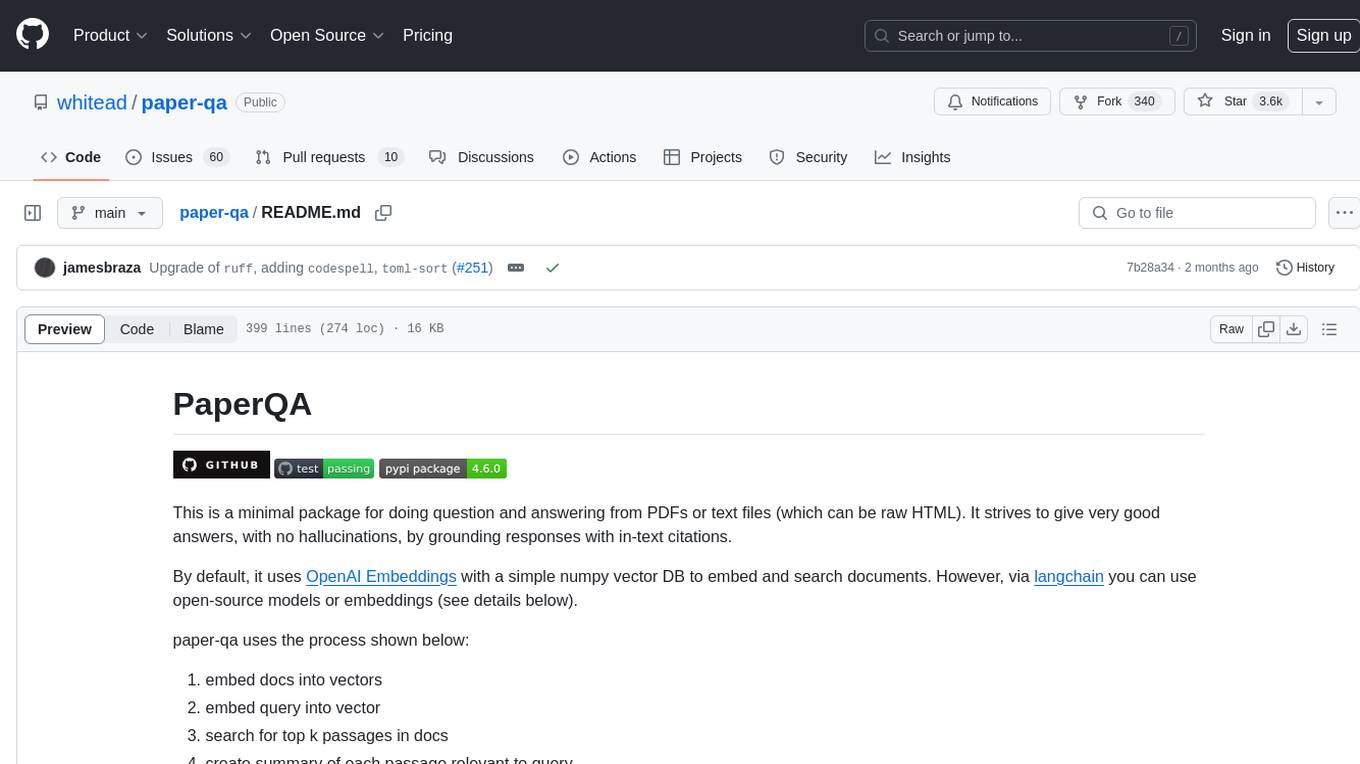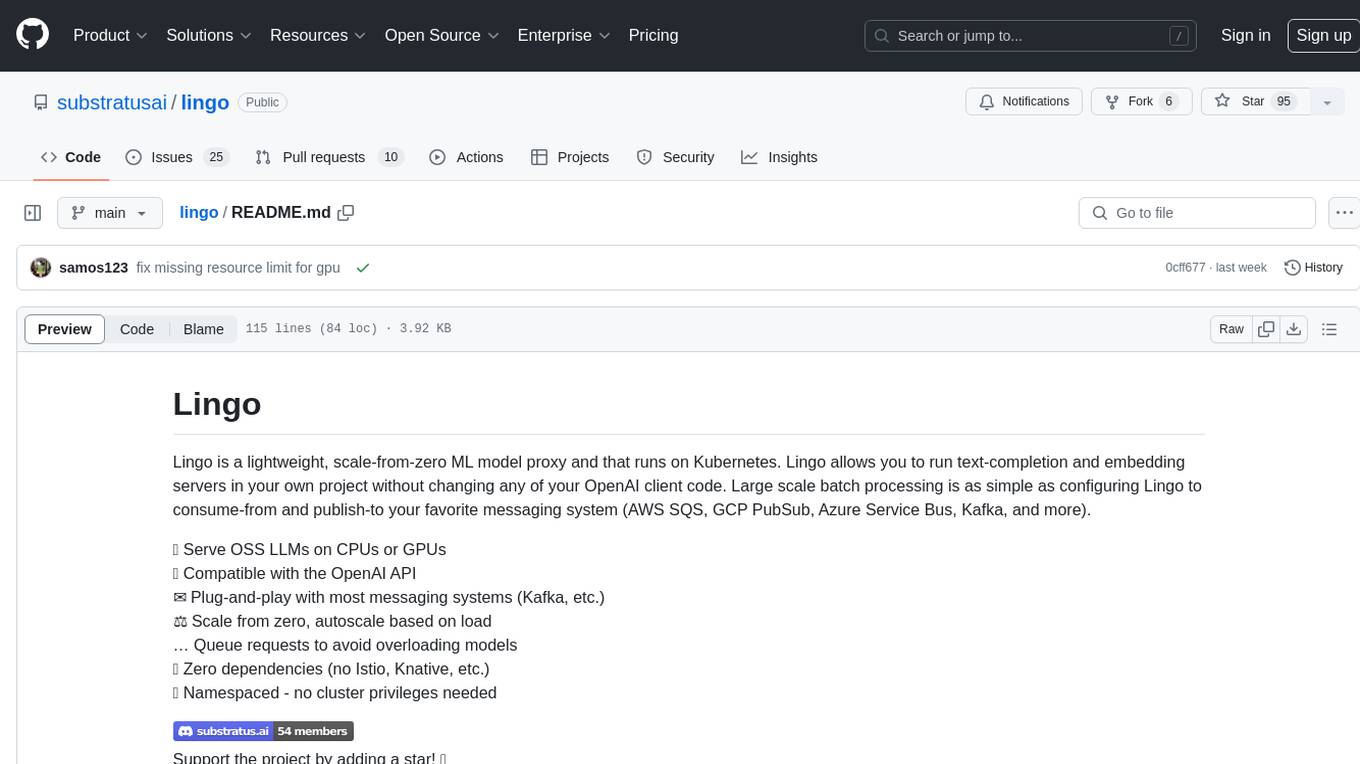AI tools for Substrate framework GitHub
Related Tools:
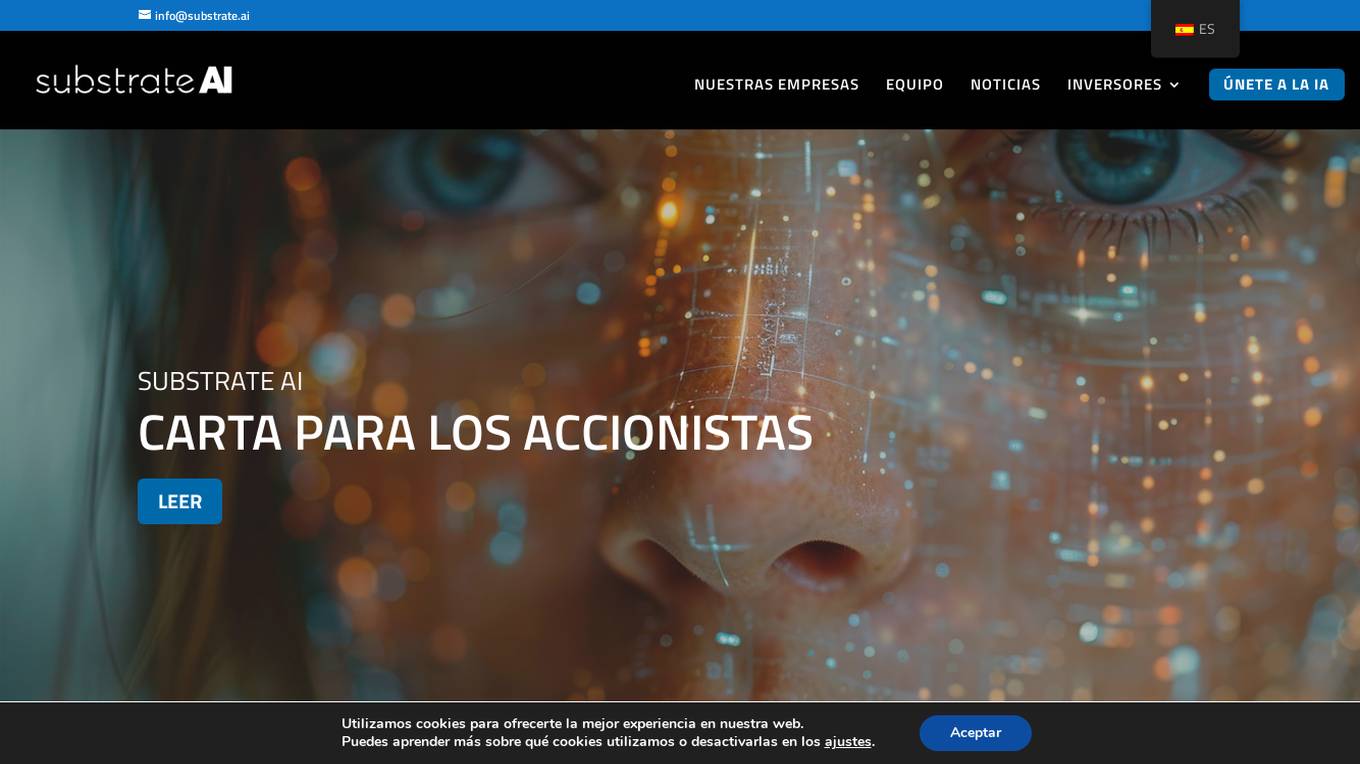
SubstrateAI
SubstrateAI is an artificial intelligence company that creates, acquires, and scales businesses in various sectors such as Health, Finance, Human Resources, and Energy. They develop products and services based on proprietary technology and are listed on stock exchanges in Spain, the UK, and the US. SubstrateAI collaborates with Subgen AI, a subsidiary providing AI solutions to companies and governments globally. The company's technology is inspired by biology and continuously evolves through the daily efforts of researchers.
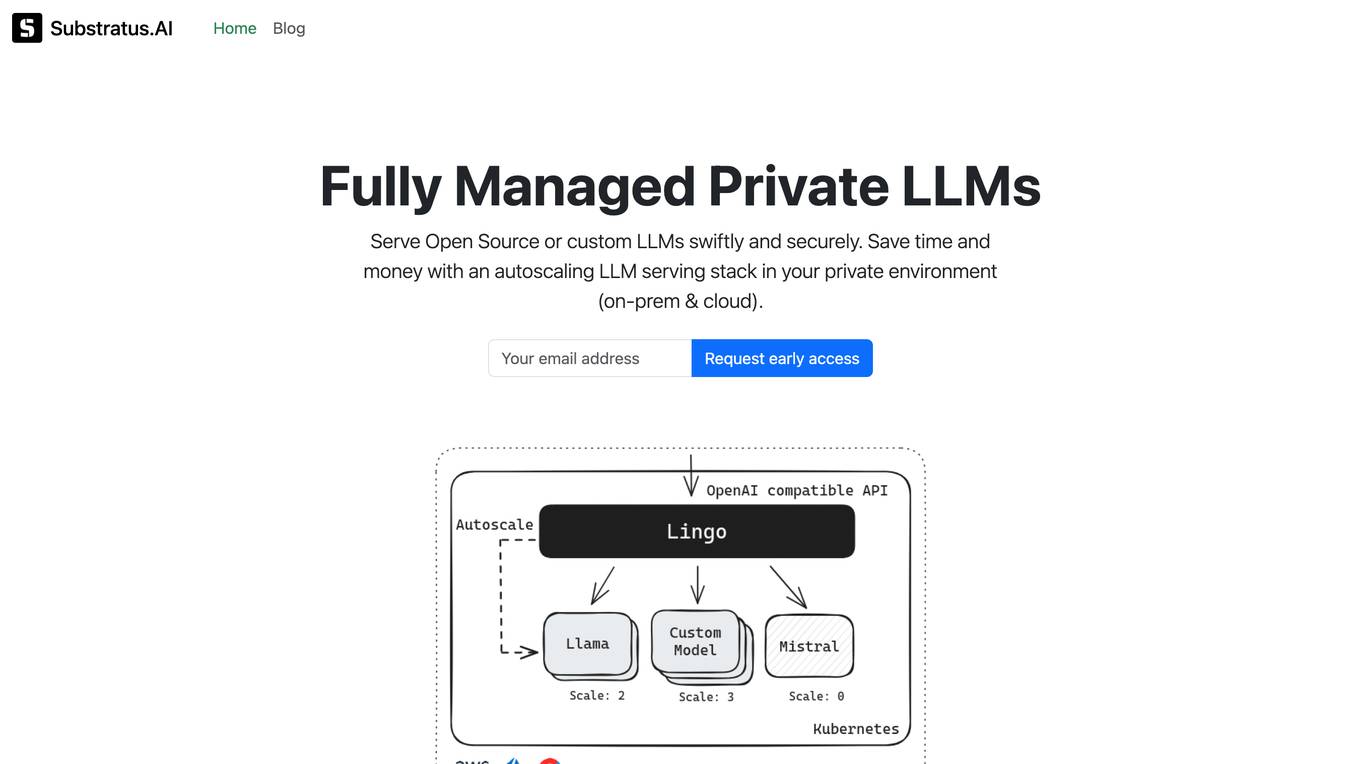
Substratus.AI
Substratus.AI is a fully managed private LLMs platform that allows users to serve LLMs (Llama and Mistral) in their own cloud account. It enables users to keep control of their data while reducing OpenAI costs by up to 10x. With Substratus.AI, users can utilize LLMs in production in hours instead of weeks, making it a convenient and efficient solution for AI model deployment.
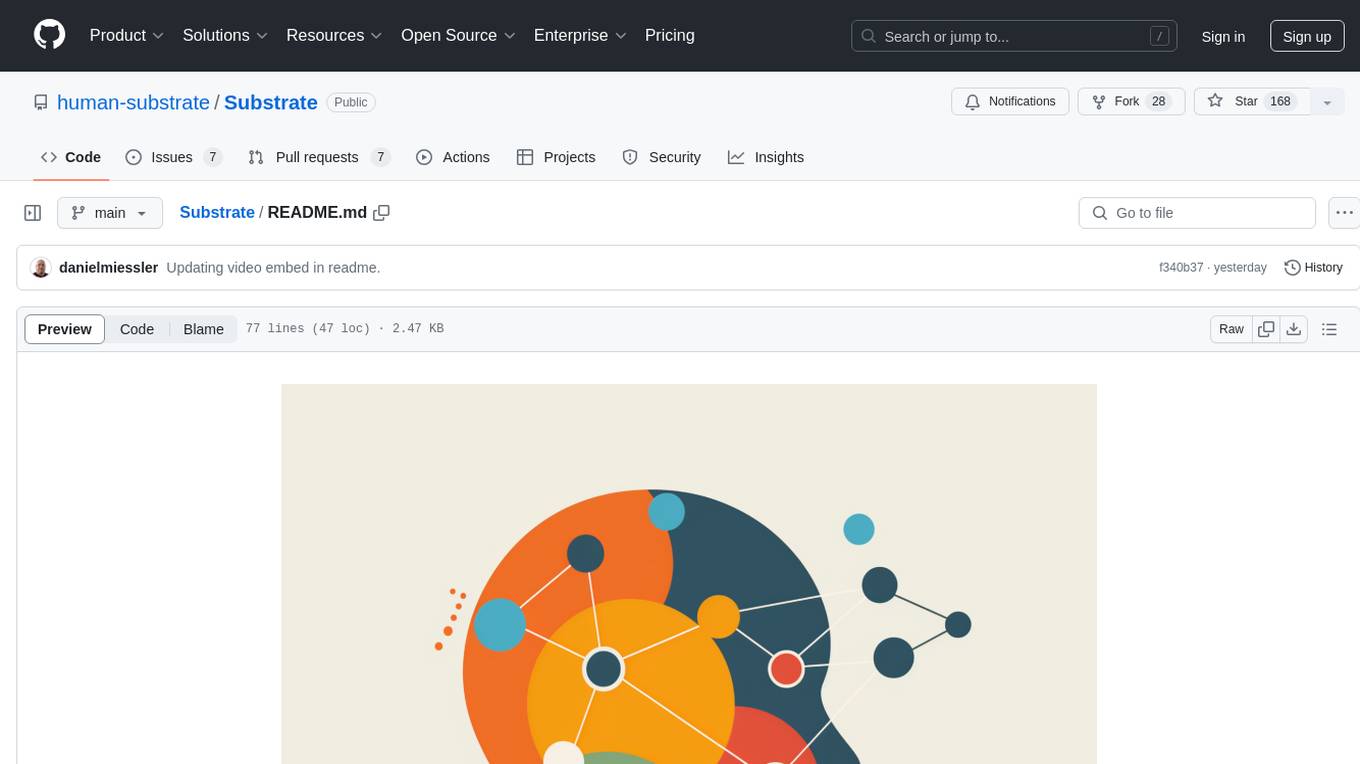
Substrate
Substrate is an open-source framework designed for human understanding, meaning, and progress. It provides a platform for individuals to contribute by modifying various object files such as Problems, Solutions, and Ideas. The project aims to visualize human progress and offers a web-based interface to facilitate non-coders in contributing. Substrate was created by Daniel Miessler in July 2024 and has a single-repo structure for easier project management. The tool emphasizes collaboration and inspiration from contributors like Jonathan Dunn, Joel Parish, and Joseph Thacker.
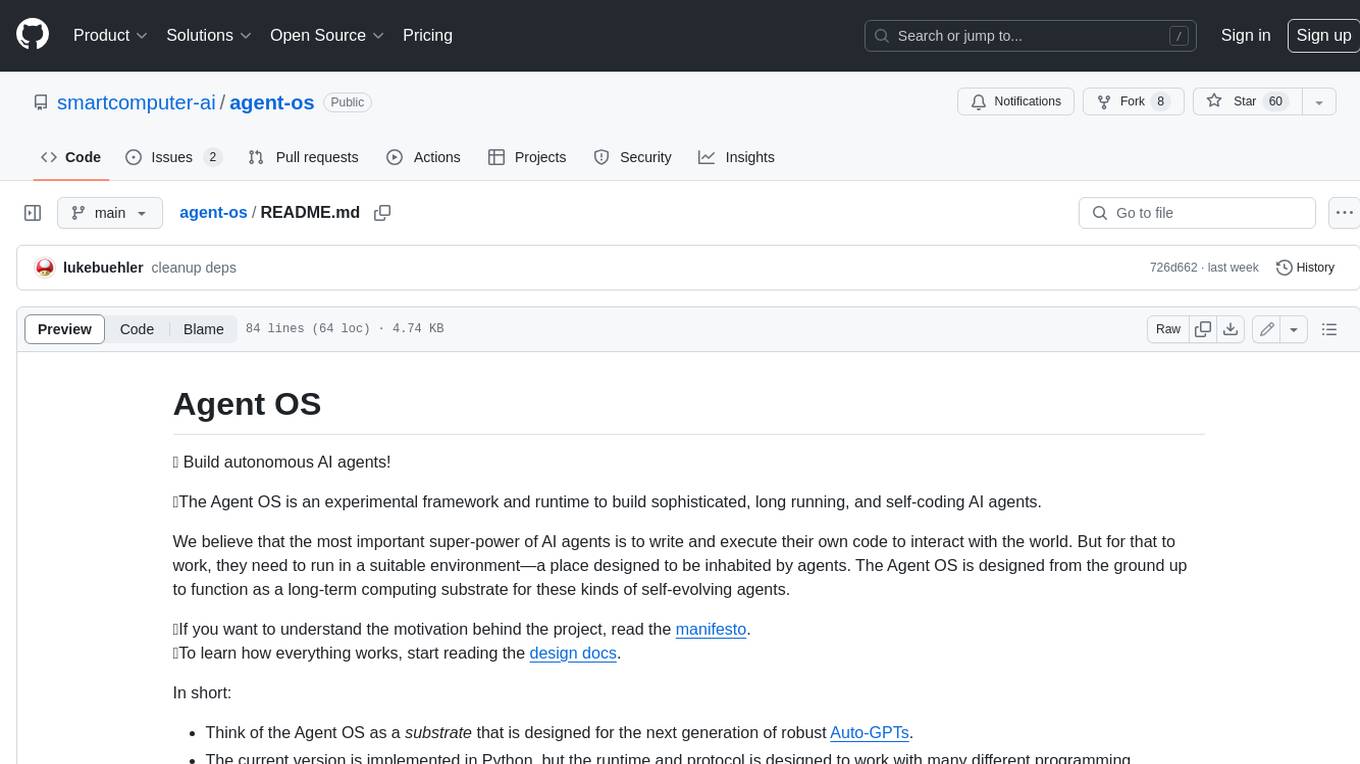
agent-os
The Agent OS is an experimental framework and runtime to build sophisticated, long running, and self-coding AI agents. We believe that the most important super-power of AI agents is to write and execute their own code to interact with the world. But for that to work, they need to run in a suitable environment—a place designed to be inhabited by agents. The Agent OS is designed from the ground up to function as a long-term computing substrate for these kinds of self-evolving agents.
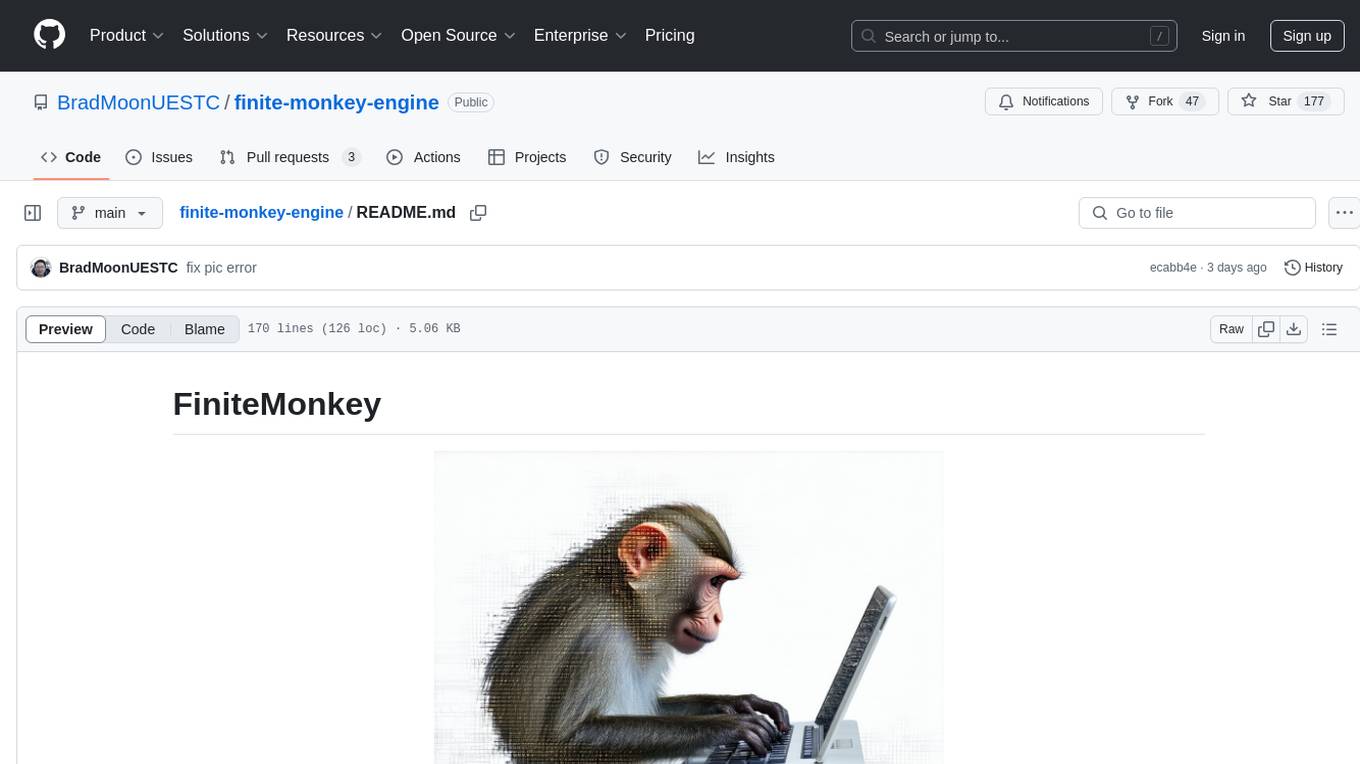
finite-monkey-engine
FiniteMonkey is an advanced vulnerability mining engine powered purely by GPT, requiring no prior knowledge base or fine-tuning. Its effectiveness significantly surpasses most current related research approaches. The tool is task-driven, prompt-driven, and focuses on prompt design, leveraging 'deception' and hallucination as key mechanics. It has helped identify vulnerabilities worth over $60,000 in bounties. The tool requires PostgreSQL database, OpenAI API access, and Python environment for setup. It supports various languages like Solidity, Rust, Python, Move, Cairo, Tact, Func, Java, and Fake Solidity for scanning. FiniteMonkey is best suited for logic vulnerability mining in real projects, not recommended for academic vulnerability testing. GPT-4-turbo is recommended for optimal results with an average scan time of 2-3 hours for medium projects. The tool provides detailed scanning results guide and implementation tips for users.
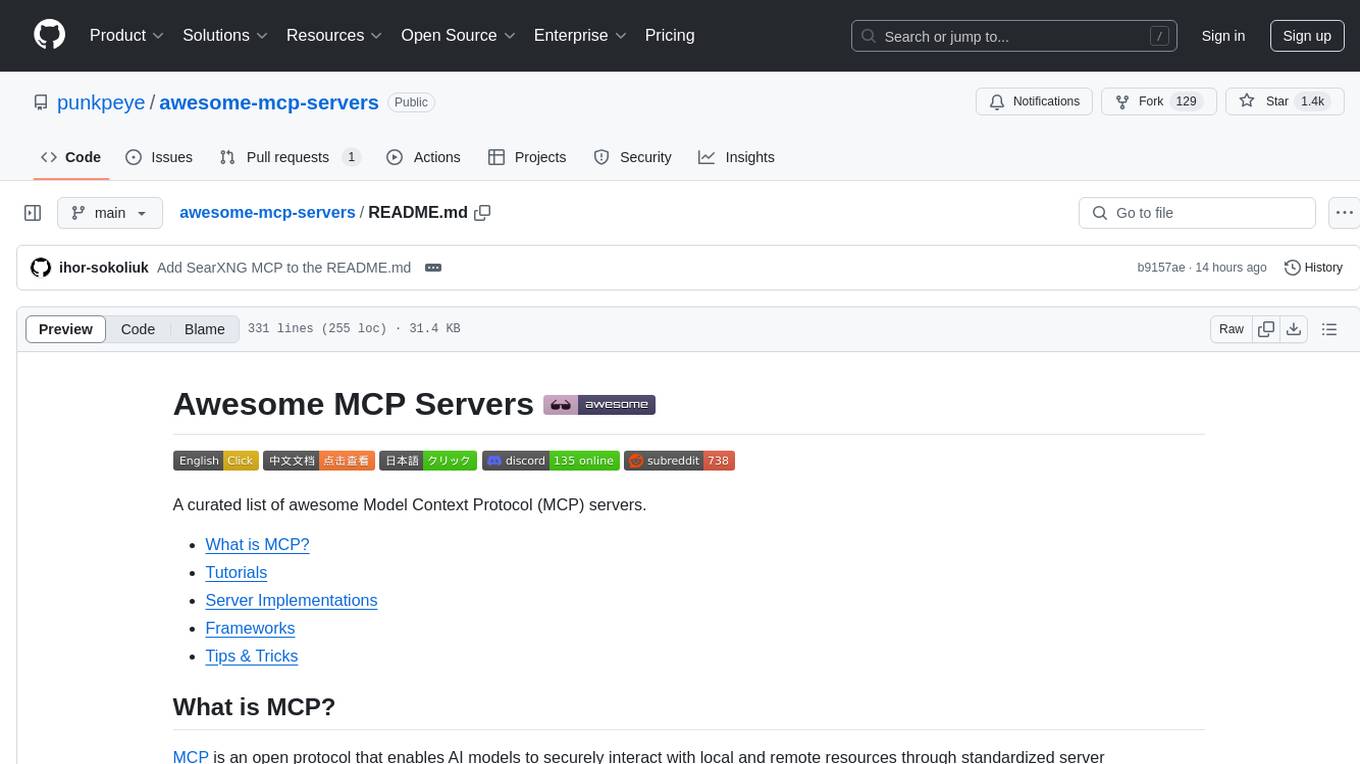
awesome-mcp-servers
Awesome MCP Servers is a curated list of Model Context Protocol (MCP) servers that enable AI models to securely interact with local and remote resources through standardized server implementations. The list includes production-ready and experimental servers that extend AI capabilities through file access, database connections, API integrations, and other contextual services.
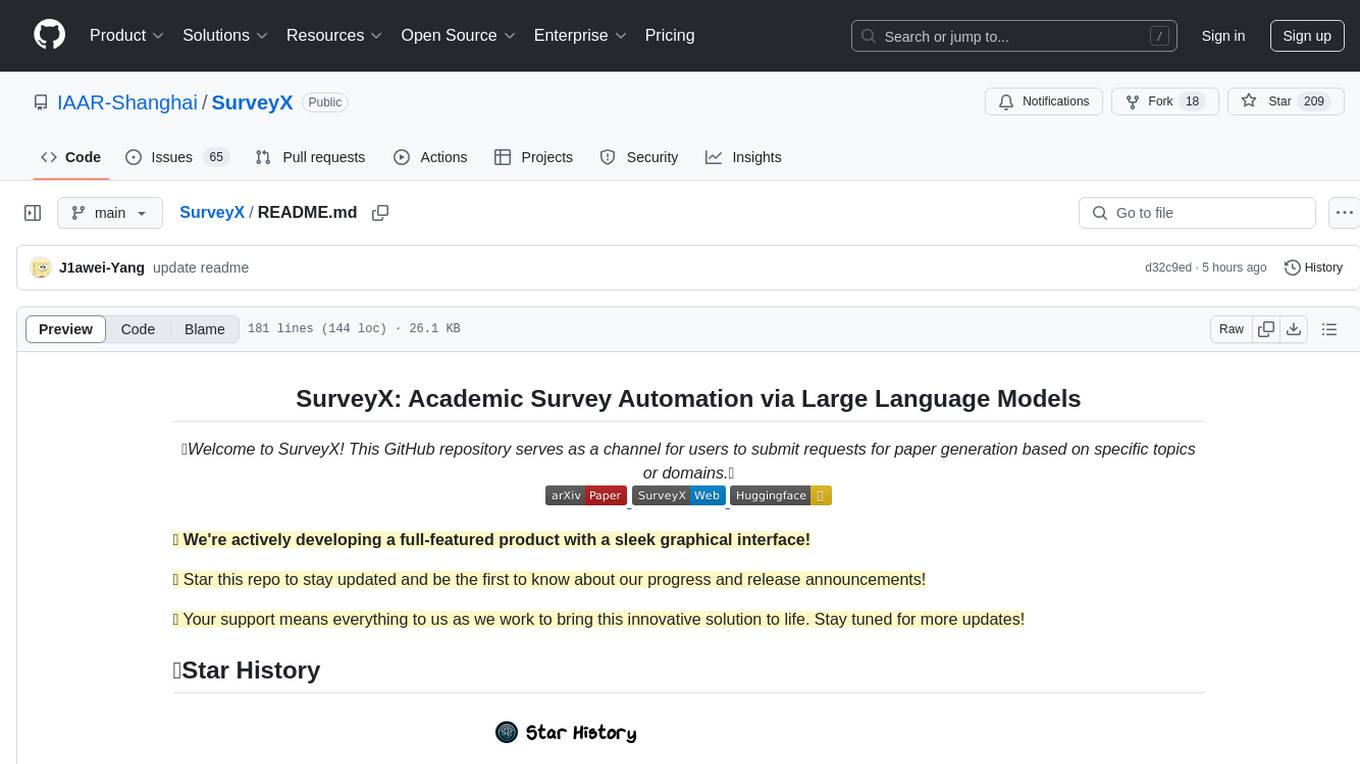
SurveyX
SurveyX is an advanced academic survey automation system that leverages Large Language Models (LLMs) to generate high-quality, domain-specific academic papers and surveys. Users can request comprehensive academic papers or surveys tailored to specific topics by providing a paper title and keywords for literature retrieval. The system streamlines academic research by automating paper creation, saving users time and effort in compiling research content.
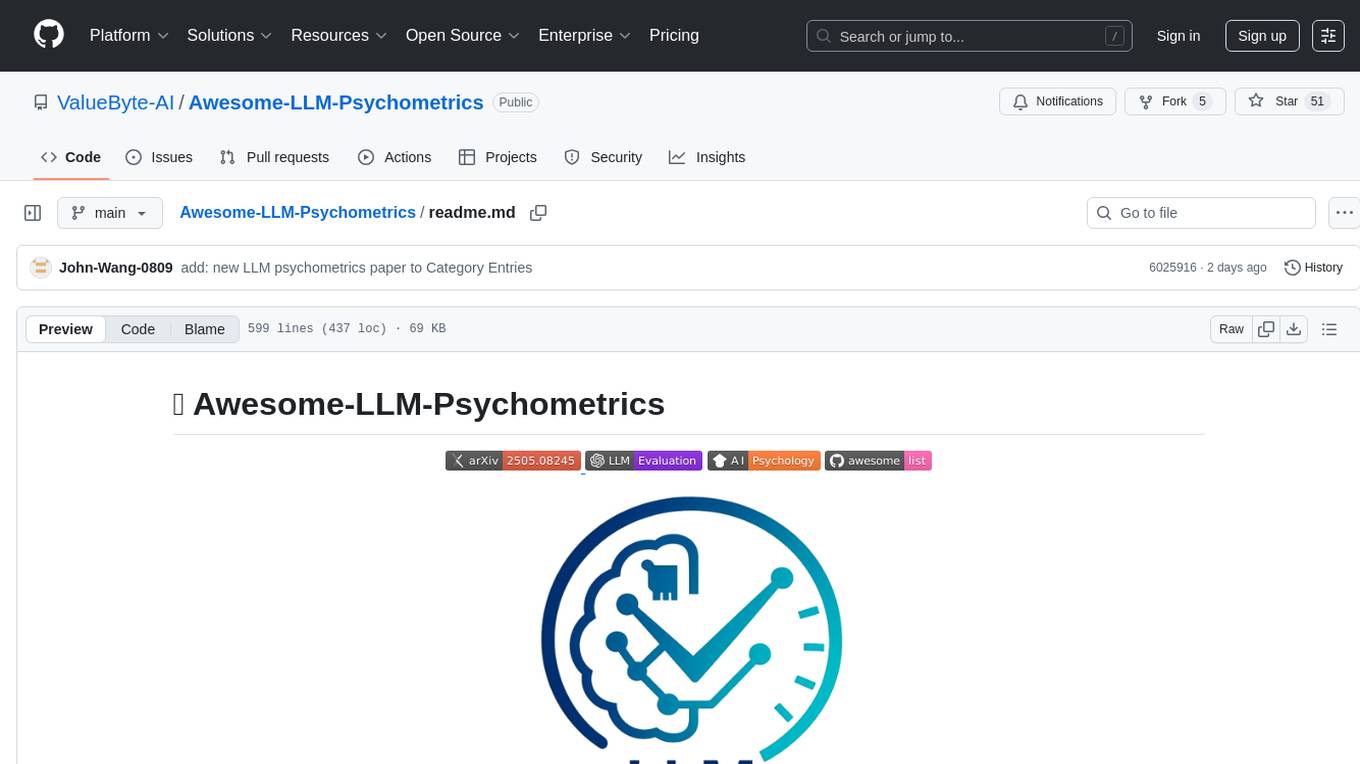
Awesome-LLM-Psychometrics
This repository contains a collection of tools and resources for conducting psychometric analysis in the context of latent variable modeling. It includes scripts for data preprocessing, model estimation, and results interpretation. The tools provided here aim to assist researchers and practitioners in the field of psychology and related disciplines to analyze complex relationships among latent variables using advanced statistical techniques.
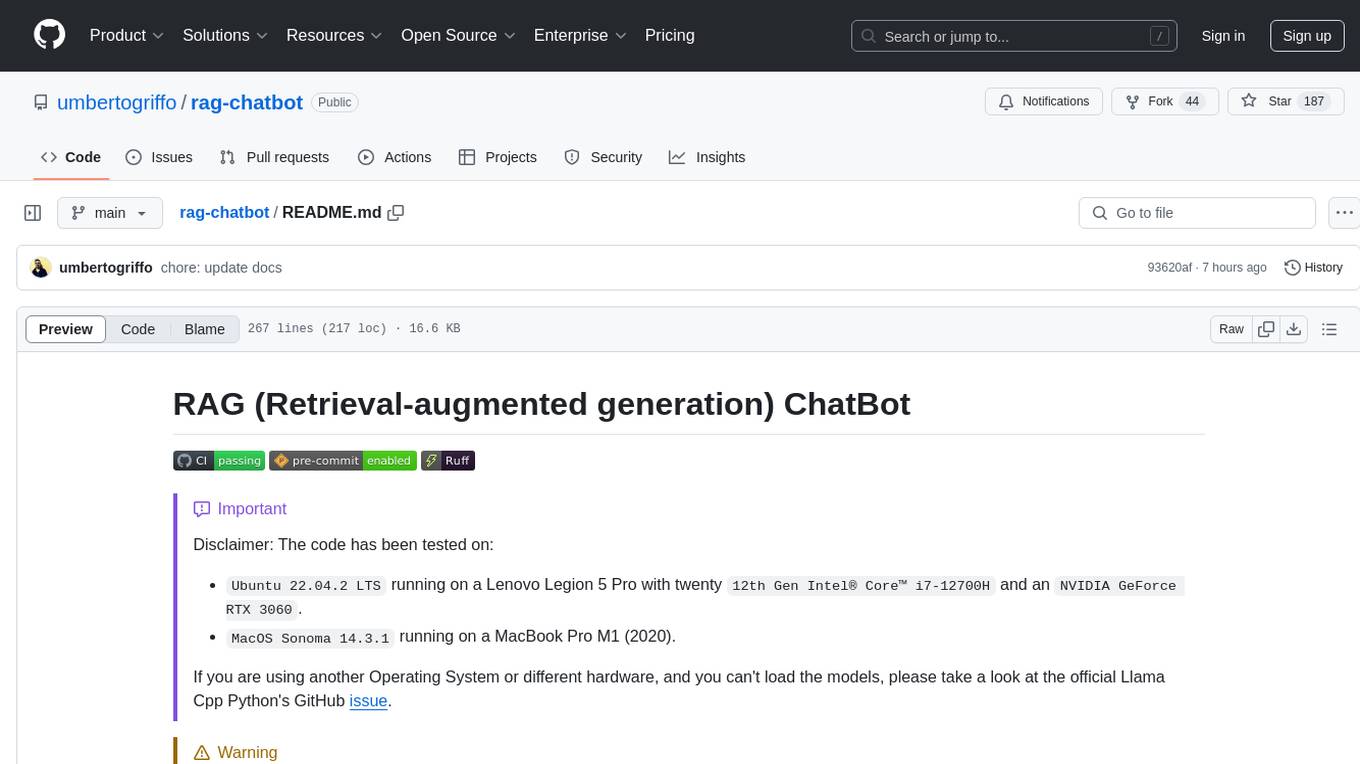
rag-chatbot
The RAG ChatBot project combines Lama.cpp, Chroma, and Streamlit to build a Conversation-aware Chatbot and a Retrieval-augmented generation (RAG) ChatBot. The RAG Chatbot works by taking a collection of Markdown files as input and provides answers based on the context provided by those files. It utilizes a Memory Builder component to load Markdown pages, divide them into sections, calculate embeddings, and save them in an embedding database. The chatbot retrieves relevant sections from the database, rewrites questions for optimal retrieval, and generates answers using a local language model. It also remembers previous interactions for more accurate responses. Various strategies are implemented to deal with context overflows, including creating and refining context, hierarchical summarization, and async hierarchical summarization.
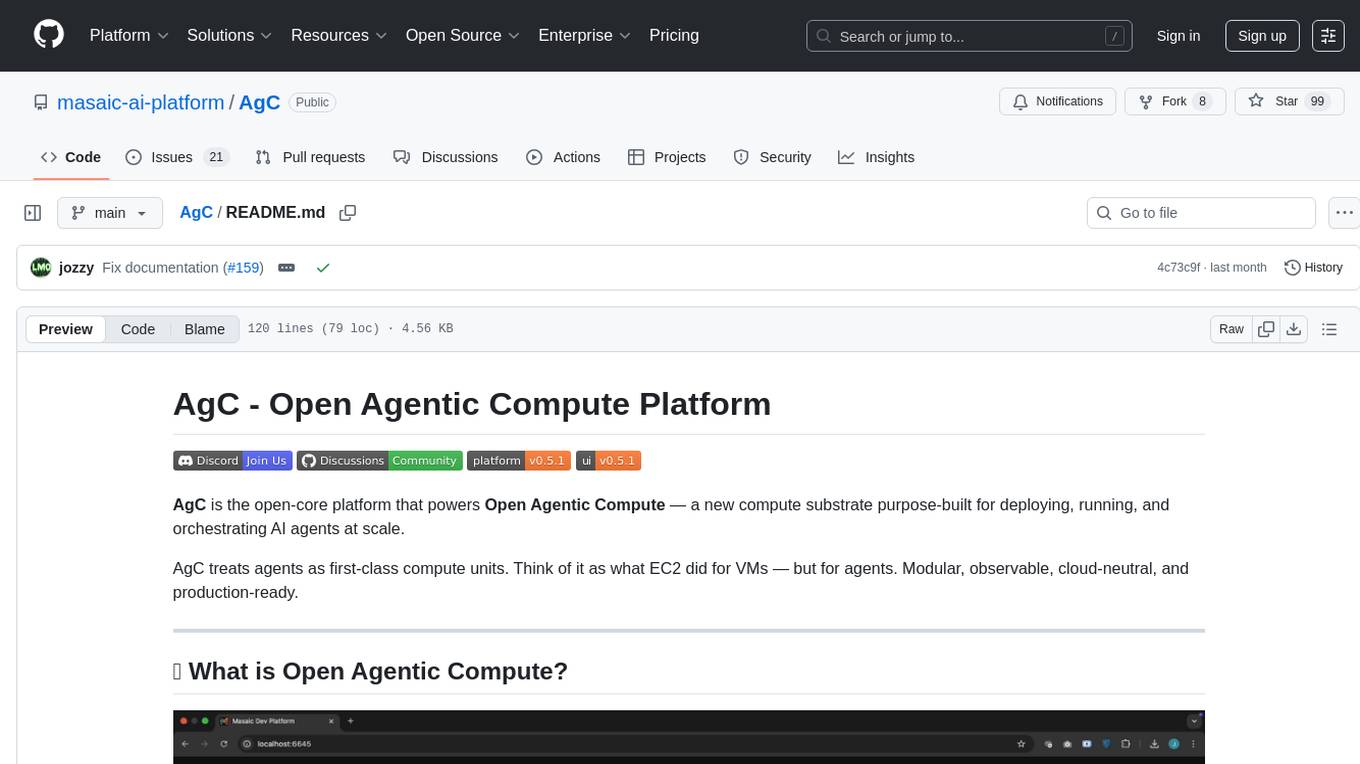
AgC
AgC is an open-core platform designed for deploying, running, and orchestrating AI agents at scale. It treats agents as first-class compute units, providing a modular, observable, cloud-neutral, and production-ready environment. Open Agentic Compute empowers developers and organizations to run agents like cloud-native workloads without lock-in.
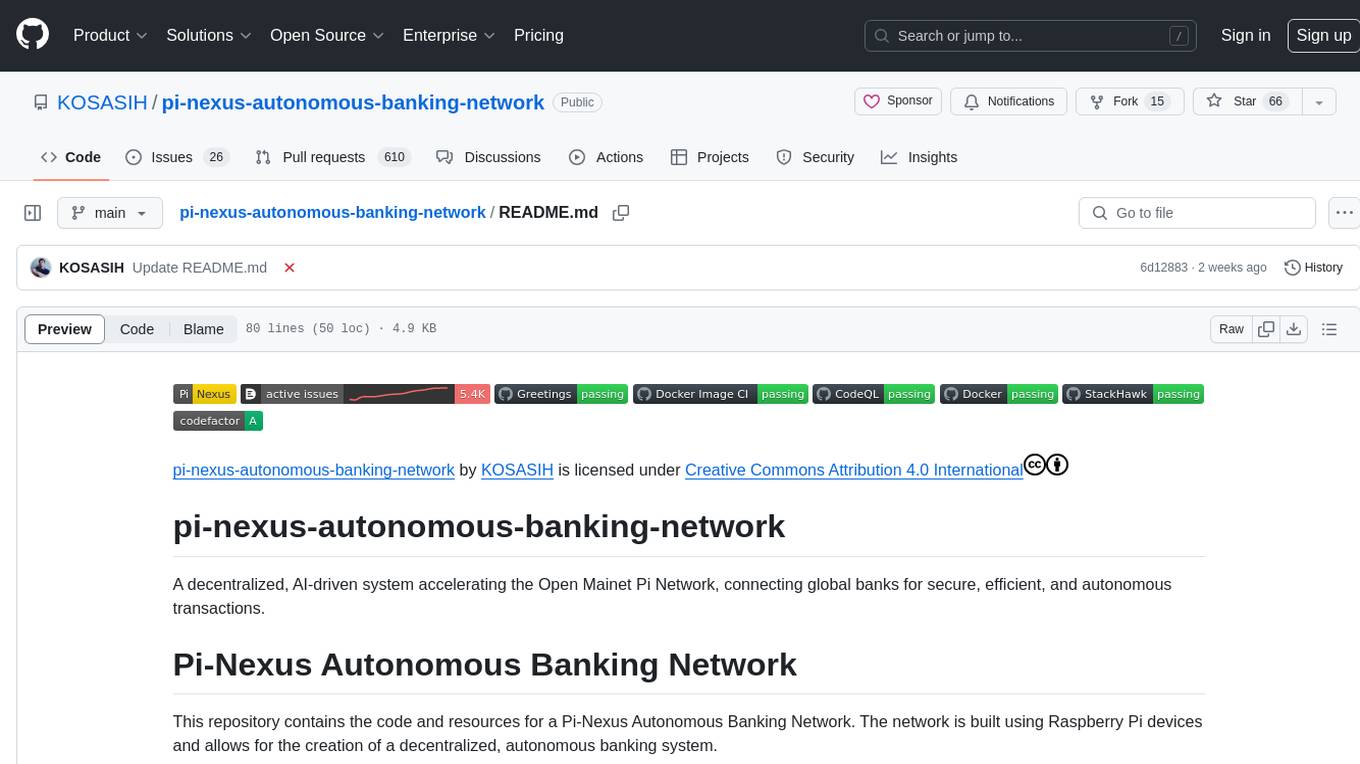
pi-nexus-autonomous-banking-network
A decentralized, AI-driven system accelerating the Open Mainet Pi Network, connecting global banks for secure, efficient, and autonomous transactions. The Pi-Nexus Autonomous Banking Network is built using Raspberry Pi devices and allows for the creation of a decentralized, autonomous banking system.
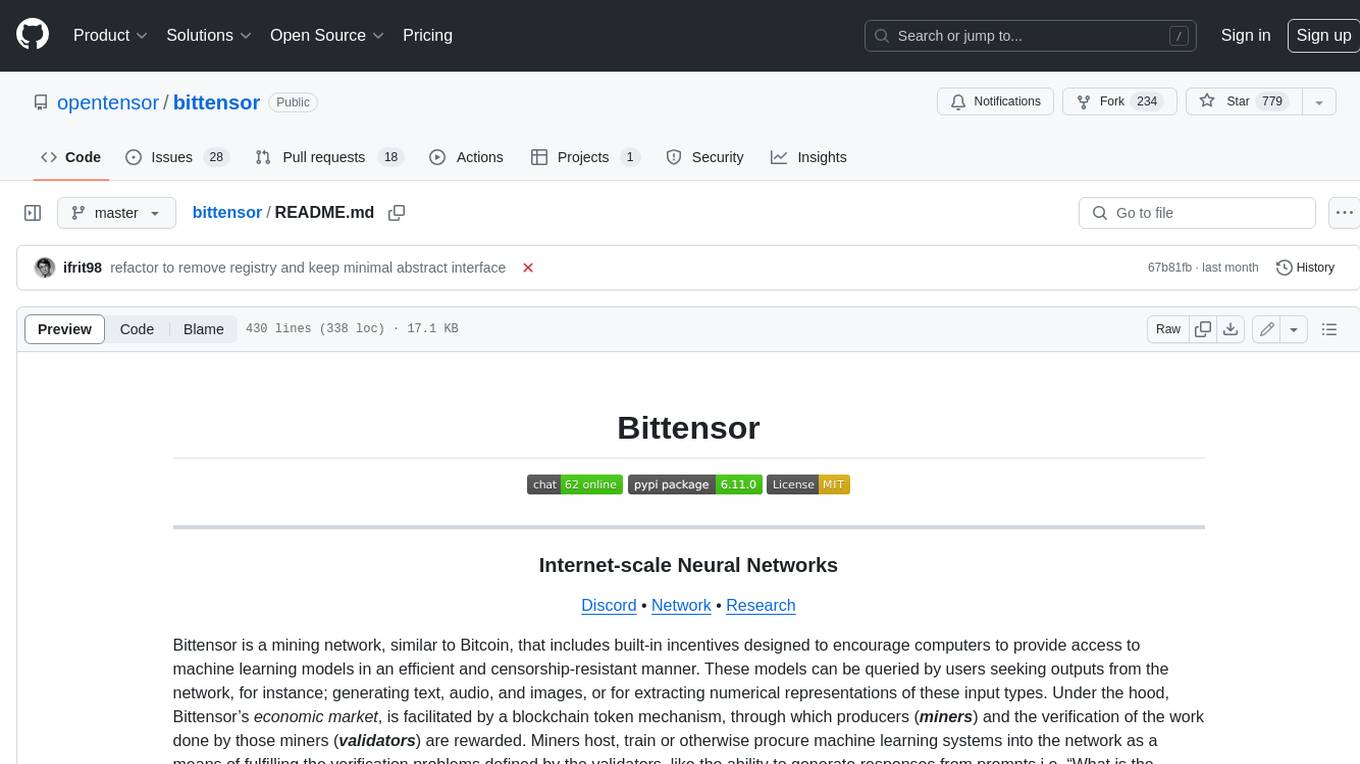
bittensor
Bittensor is an internet-scale neural network that incentivizes computers to provide access to machine learning models in a decentralized and censorship-resistant manner. It operates through a token-based mechanism where miners host, train, and procure machine learning systems to fulfill verification problems defined by validators. The network rewards miners and validators for their contributions, ensuring continuous improvement in knowledge output. Bittensor allows anyone to participate, extract value, and govern the network without centralized control. It supports tasks such as generating text, audio, images, and extracting numerical representations.
